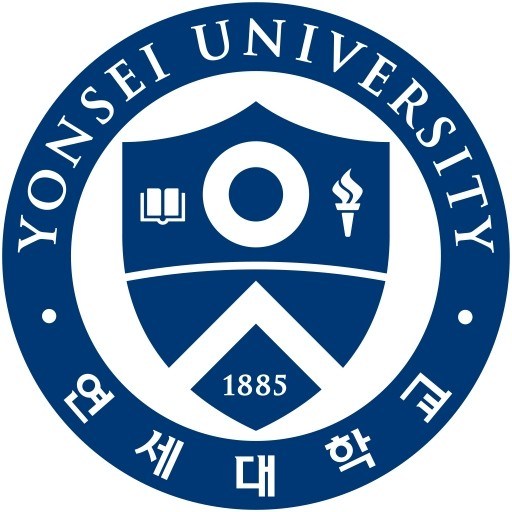Photos of university
The Mechanical Engineering undergraduate program at Yonsei University offers a comprehensive and rigorous education aimed at cultivating innovative and competent engineers capable of addressing the evolving technological challenges of the modern world. This program provides students with a solid foundation in fundamental principles of physics, mathematics, and materials science, combined with hands-on experience in designing, analyzing, and manufacturing mechanical systems. Through a carefully structured curriculum, students gain expertise in areas such as thermodynamics, fluid mechanics, control systems, mechanical design, and manufacturing processes, preparing them for diverse career paths in industry, research, or academia. Yonsei University's state-of-the-art laboratories and research centers provide students with ample opportunities to engage in practical projects, internships, and cutting-edge research collaborations. The program emphasizes the development of critical thinking, problem-solving skills, and innovative capabilities, encouraging students to contribute to advancements in renewable energy, robotics, aerospace, automotive engineering, and other dynamic sectors. Faculty members, who are experts in their fields, support students through mentoring and guidance to foster a deep understanding of mechanical engineering principles and their applications. Additionally, the program encourages international exposure and collaboration, offering exchange opportunities and partnerships with leading global institutions. Graduates of the Mechanical Engineering program at Yonsei University are well-equipped to pursue successful careers in engineering design, manufacturing, research and development, or to continue their education through master's and doctoral programs. Committed to excellence and innovation, this program aims to produce engineers who are not only technically proficient but also responsible and ethical professionals contributing to societal progress.
- Mathematics for Mechanical Engineers I
- Mathematics for Mechanical Engineers II
- Creative Design Project I
- Mechanics of Solids I
- Thermodynamics
- Design and Manufacturing Processes I
- Mechanism Design
- Fluid Mechanics
- Dynamics
- Electromagnetics and Electrical Systems
- Introduction to Biotechnology
- Seminar I
- Seminar II
- Engineering Numerical Analysis
- Creative Design Project II
- Mechanics of Solids II
- Applied Thermodynamics
- Design and Manufacturing Processes II
- MACHINE ELEMENT DESIGN
- Applied Fluid Mechanics
- Heat Transfer
- Engineering Materials and Behavior
- Mechanical Vibration
- Mechanical System Control
- Computer Control and Simulation of Manufacturing Systems
- Biomedical Engineering
- Introduction to Nano Physics
- Creative Design Project III
- Thesis Research
- Energy and Power Engineering
- Air Conditioning and Environmental Engineering
- Microsystems
- Optical Engineering
- Net-Shape Manufacturing System
- Mechatronics
- Thermo-Fluid System Design
Requirements
- Personal Statement
- Letter of Recommendation
- Counselor Reference
- Records of School Attendance
- Information on Schools Attended
- List of Supplementary Documents
- Letter of Consent and Letter of Request
- High School Diploma or Certificate of (Expected) Graduation
- Official Transcripts of All Attended High Schools
- Certificate proving Korean language proficiency
- Documents verifying foreign nationality of applicant and his/her parents
- Middle school transcripts, awards, reports of standardized test scores, proof of foreign language proficiency, certificates/licenses, school profile etc
Scholarships
- Korean Government Scholarship Program
- Korean Government Support Program for Foreign Exchange Students
- Support Program for Self-financed Students
The Mechanical Engineering program at Yonsei University is a comprehensive undergraduate course designed to equip students with a solid foundation in the principles of mechanical science and engineering. The program emphasizes both theoretical knowledge and practical skills, preparing graduates for diverse careers in industry, research, and academia. Students undertake a rigorous curriculum that covers fundamental topics such as thermodynamics, fluid mechanics, mechanics of materials, manufacturing processes, and control systems. In addition to core courses, there are specialized electives that allow students to focus on areas like robotics, automation, materials science, and design engineering.
Yonsei University’s Mechanical Engineering department is equipped with state-of-the-art laboratories and facilities, providing students with opportunities for hands-on experience through laboratory experiments, projects, and internships. The university maintains close partnerships with industry leaders, enabling internships and collaborative research projects that enhance practical understanding and employability. The program also encourages innovation and entrepreneurship, offering various support programs and competitions to foster creativity among students.
Students are expected to develop critical thinking, problem-solving skills, and teamwork abilities through project-based learning and group assignments. The university emphasizes global perspectives, offering exchange programs and collaborations with international institutions to broaden students’ academic and cultural horizons. Graduates from the Mechanical Engineering program at Yonsei University are well-prepared to pursue careers in sectors such as automotive, aerospace, manufacturing, energy, and consulting. Many alumni also pursue advanced studies or engage in cutting-edge research that contributes to technological advancement.
The program is designed to adhere to the latest educational standards and industry requirements, ensuring that graduates are competitive in the global job market. Yonsei University's commitment to academic excellence and innovation makes its Mechanical Engineering program a distinguished choice for students interested in developing a versatile and in-depth understanding of mechanical systems and engineering principles, contributing to technological progress and societal development.

